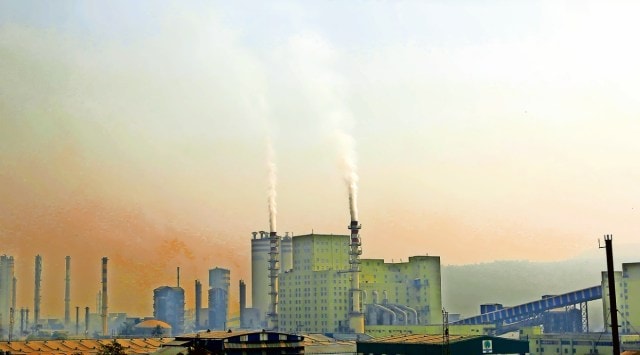As G20 drags feet, UN’s global climate stocktake flags large deficits
The synthesis report of the Global Stocktake (GST), a Paris Agreement-mandated exercise at assessing the progress on climate action, notes that while headway had indeed been made, countries were nowhere close to achieving targets that would keep global warming under agreed levels.
 Climate change was biggest hurdle in preparing a consensus decision at G20, apart from the Russia-Ukraine conflict. File
Climate change was biggest hurdle in preparing a consensus decision at G20, apart from the Russia-Ukraine conflict. File EVEN AS the G20 struggles to find an agreeable language on climate change to be included in its joint communique, a new report released by UN Climate on Friday highlights the rapidly closing window of opportunity to contain rise in global temperatures within 1.5 degree Celsius from pre-industrial times.
The synthesis report of the Global Stocktake (GST), a Paris Agreement-mandated exercise at assessing the progress on climate action, notes that while headway had indeed been made, countries were nowhere close to achieving targets that would keep global warming under agreed levels.
Citing previous assessments, the synthesis report pointed out that keeping the chances of meeting the 1.5 degree Celsius target implied a reduction of “around 43, 60 and 84 per cent in global GHG (greenhouse gas) emissions below the 2019 level by 2030, 2035 and 2050 respectively”. It noted that even with countries continuing to take their current climate actions, global greenhouse gas emissions in 2030 was expected to be about 24 billion tonnes of carbon dioxide-equivalent more than where it should be to keep the 1.5 degree Celsius hopes alive.
The GST report has pointed to the deficits in every aspect of climate action — mitigation, adaptation, finance, technology and capacity building. “While action is proceeding, much more is needed now on all fronts,” it said. This report would be presented at the year-ending annual climate change meeting, this time being held in Dubai, and is expected to inform and influence its outcome.
Reacting to the report, Sultan Al Jaber, the president designate of the Dubai meeting, said the road ahead was difficult but not impossible. “…We must urgently disrupt business as usual and unite like never before to move from ambition to action and from rhetoric to real results,” he said in a statement.
“I am calling on leaders from both the public and private sector to come to COP28 (Dubai meeting) with real and actionable commitments to address climate change. We need to rapidly decarbonize both the supply side and demand side of the energy system at the same time. We need to triple renewable energy by 2030, commercialize other zero carbon solutions like hydrogen and scale up the energy system free of all unabated fossil fuels, while we eliminate the emissions of the energies we use today… And we need fundamental reform of the international financial architecture that was built for the last century,” he said.
But in yet another reminder of the difficulties in all agreeing to more ambitious climate action, G20 countries were still struggling to agree to climate change related paragraphs in the joint communique. In fact, climate change was the biggest hurdle in preparing a consensus decision at G20, apart from the Russia-Ukraine conflict. And, this is just a grouping of 20 countries. The climate change conference involves more than 190 countries and decisions have to be taken by consensus.
In fact, the Environment and Climate Sustainability Working Group of G20 which wrapped up its deliberations in Chennai in July had been unable to reconcile the differing positions of the developed and developing countries within the grouping. While developed countries pressed for enhancement of mitigation targets from everyone, the developing countries in the group emphasised on deliveries on the unfulfilled promises related to finance and technology and urged the developed countries to do more.
At the Chennai meeting, there was also a proposal to commit to global emission reductions by 60 per cent by the year 2035 from the 2019 baseline. The scientific consensus, as of now, is that countries need to cut their emissions by about 45 per cent from 2019 levels by the year 2030 to retain hopes for meeting the 1.5 degree Celsius target.







